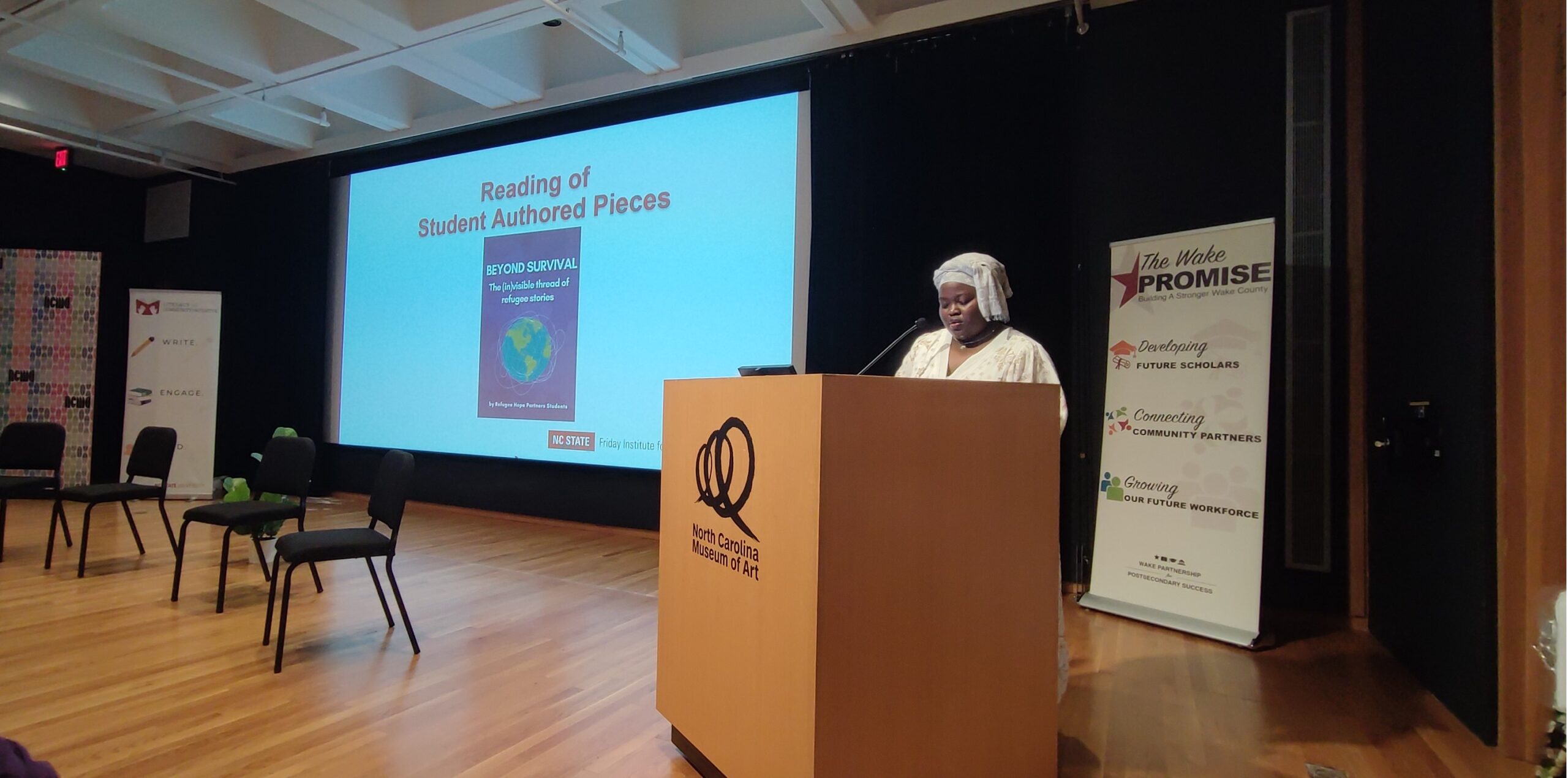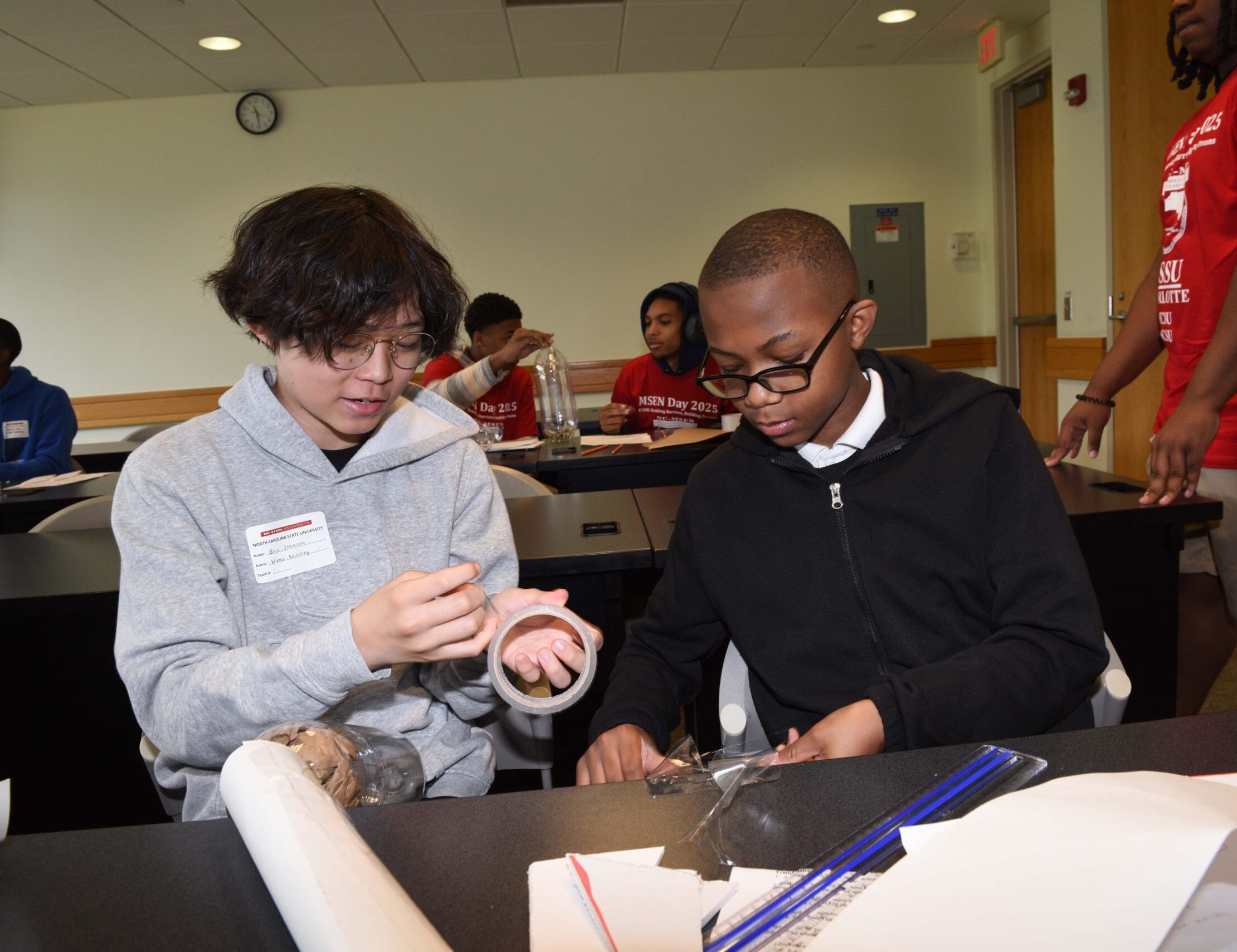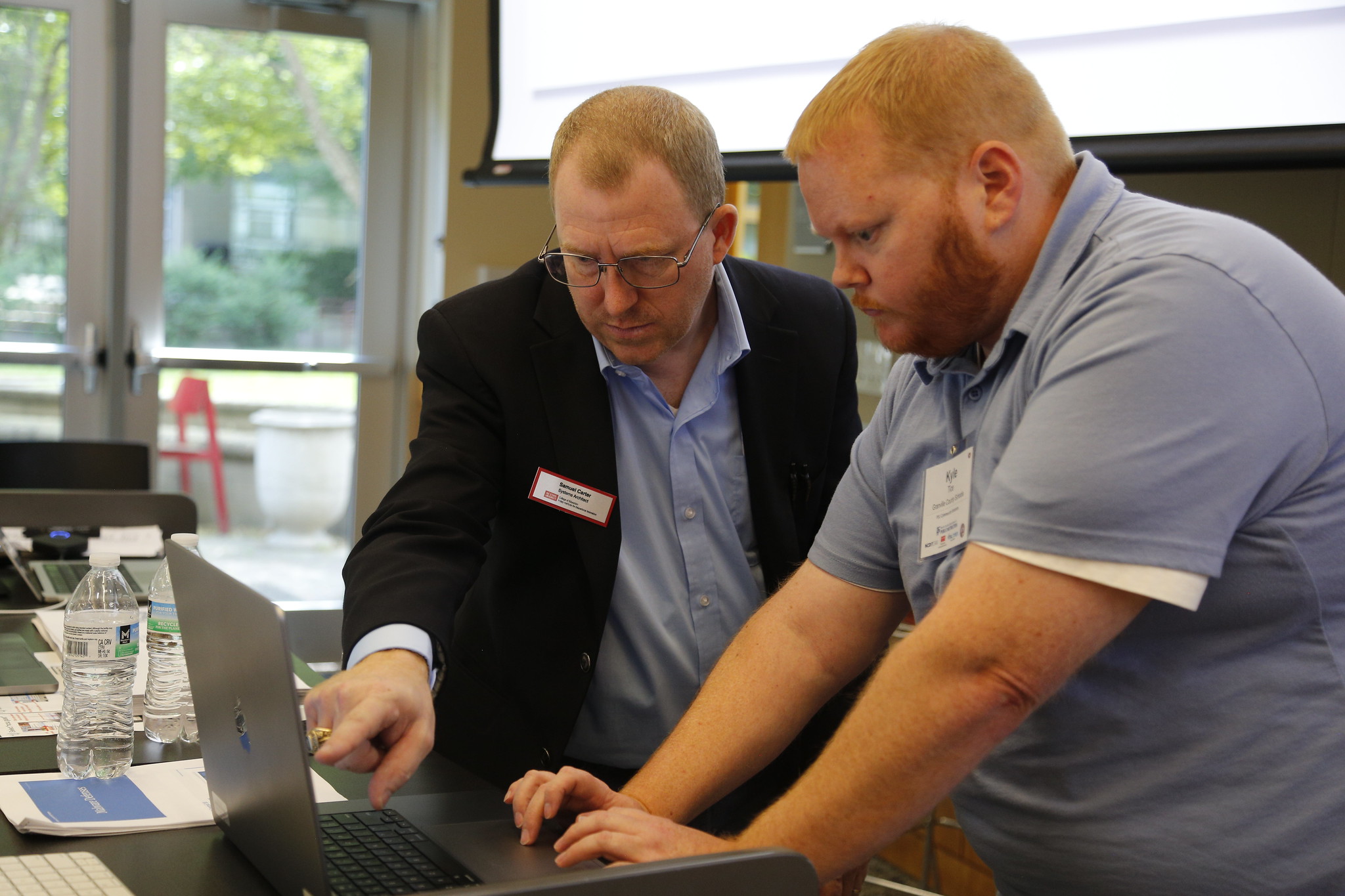Using Mobile Devices to Diagnose and Address Mathematics Difficulties
August 15, 2011—The elementary students in the LPP-Sync workshop are extremely certain on what they’ve been working on the past two weeks at the Friday Institute for Educational Innovation. A one-word answer that seems to bring an unexpected smile to their faces, “fractions.” This workshop engaged the students to practice math problems with mobile devices, but allowed them to share and discuss their work with each other and with the teachers using new online collaboration tools.
Through the LPP-Sync (Learning Progress Profiles Synchronized for Networked Mobile Devices) project, NC State University mathematics education researchers created a new K-8 mathematics diagnostic assessment and collaborative learning tool using browser-based technologies and wireless communications. The team is engaged in designing, implementing and studying a model of wireless devices to develop learning progress profiles in the mathematics topics of rational number reasoning across grades K-8.
“Children can learn far more in mathematics when they are supported in their reasoning and taught how to learn more successfully using contemporary technologies, said Dr. Jere Confrey, the Joseph D. Moore Distinguished University Professor. “Using wireless devices to collect real-time data on student thinking will transform instruction. LPP-Sync provides teachers the assurance that all children receive targeted assistance where they need it most.”
Second and third grade students from the Neighbor-to-Neighbor Community Outreach Center in downtown Raleigh joined the LPP-Sync team to try out the new hands-on math activities and technology. One participant, Ashanti will be entering the fourth grade this fall and after her experience at the workshop she said with confidence, “I was having trouble in math, but now I’m doing way better.”
Ashanti wasn’t always a fan of math lessons, but praised the NC State team for the creative games and fun ways to learn these math concepts. What was Ashanti’s favorite tool to use this week? The iPad. It was the first time she had used one and had not only mastered basic use, but LPP-Sync’s education mathematics application as well.
The mathematics learning was the primary purpose of the workshop but the students were also enlisted from the first days as co-designers, to advise on the design of the LPPSync software. The number of stickers they each accumulated on their name cards during the two-week workshop attested to their growing awareness and embrace of that role.
Dr. Alan Maloney, senior research fellow at the Friday Institute, outlined the next steps in the project: “The diagnostics are based on research on student learning over time, called learning trajectories. The software gathers data directly from students’ actions with on-screen mathematical objects starting where the children are at, for instance, with fair sharing. Our next goal is the build the project out to address more of the K-8 topics and to explore how to provide the results of the data to teachers and students in ways they can make use of it most effectively.”
The one-year, $300,000 LPP-Sync project is a supplement to the group’s previous $400,000 grant funded by the Qualcomm Corporation, supplementing grants from the National Science Foundation. The LPP-Sync project addresses the urgent need in classrooms for new means of assessing or evaluating the growth of children’s understanding of ‘big ideas’ in mathematics. Rational number reasoning is key to student success in algebra; and rapid analysis of individual and group progress helps instructors plan next steps, form groups effectively and focus interventions to individual needs. The practice mode with immediate feedback and use of chat features for sharing and discussing work permits students to apply preferred ways of communication used outside the classroom in the classroom in an educationally sound way.
Learn more information about LPP-Sync.
- Categories:



